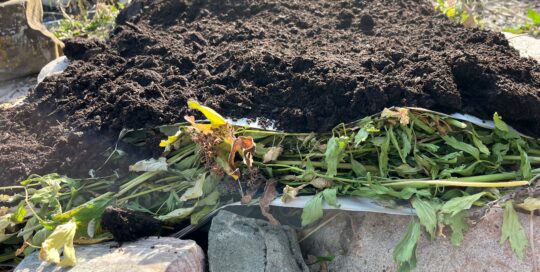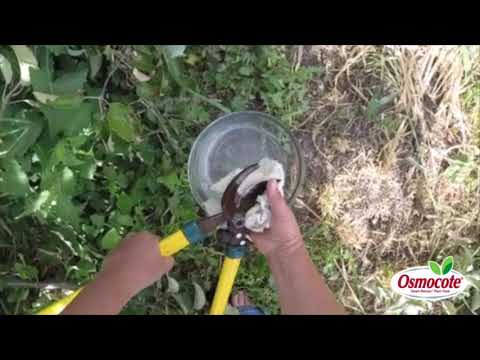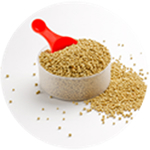The mystery of the curling pear leaves
Views: 12864
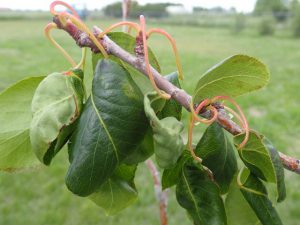
I’ve been chasing pears since we moved to Central Montana over a decade ago, and it’s been a pear rollercoaster. After planting a bare root tree, along with another potted variety, it looked like there was hope for a harvest… that is until the potted tree succumbed to fire blight at the end of last year. Even so, the bare root looked absolutely fabulous this spring, loaded with blossoms. Then it all went south. Now the leaves are curling and it appears to barely be hanging on to what life is left in it. I need to figure out what’s happening with it, but it’s been problematic to figure out the culprit.
Herbicide Damage
This is an outside shot, but I can see where some of the spray my husband has used to knock out the knapweed migrated to the tree. Although it’s technically not supposed to do that. It’s just too odd that all of the leaves on the tree are curled in an obvious stress response of some sort.
Aphids
While a few aphids are not going to harm a tree, a severe infestation will. Unfortunately, that’s not my pear problem. I’ve inspected the leaves and can find no evidence of them anywhere.
Pear Leafcurling Midges
These are very small, orange (at least when they’re young) flies that feed upon the leaves as larvae. In the spring, the adults lay eggs in the leaves when they’re just starting to come out in the spring, and the larvae feed on the new leaves. The leaves curl upwards and often turn black around the edges. The difficulty is it’s often difficult to tell if it’s a pest issue or possibly frost damage early in the season; plus, there really is no good treatment for it if it is the midge outside of cleaning up the leaves and burning or disposing of them. I’ve seen no evidence of them, so I don’t think the midges are the issue.
Drought
Although we’ve had ample rainfall over the past month (to the point of flooding in many areas) earlier in the spring we were a little light. Drought can cause leaves to curl as it stresses the tree.
Fire Blight
Since I lost the other tree to fire blight, I was concerned this was what was happening early on this spring, but it’s not following the typical pattern. Usually the leaves curl in more of a crookneck fashion and often turn black. And while some of the edges are darkened, it’s not the normal blight appearance. The difficulty is, at this time, if it is blight, I fear it’s too far gone to help.
Fungus
There are several fungal issues that can attack pears, such as Fabraea leaf spot, sooty blotch, and apple scab. Since they typically cause spots on the leaves, not curling them upward like these are, I’m crossing fungus off the list.
At this point, my leaf-curling pear tree is a mystery. None of the symptoms seem to fit the pattern of any of these possibilities. I plan on taking a sample to our Extension office to see if they know of something occurring in our area that isn’t normal. This is just one reason why horticulture is such a good endeavor for those people who like to figure out what’s happening. I will keep you posted on what I find.
Meet Amy Grisak
Amy is a freelance author and photographer in Great Falls, MT who specializes in gardening, foods, and sustainable agriculture. She provides information on every kind…
Amy's Recent Posts
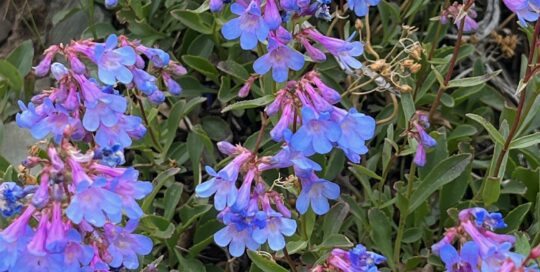
Watch for Fungal Diseases on Penstemon
